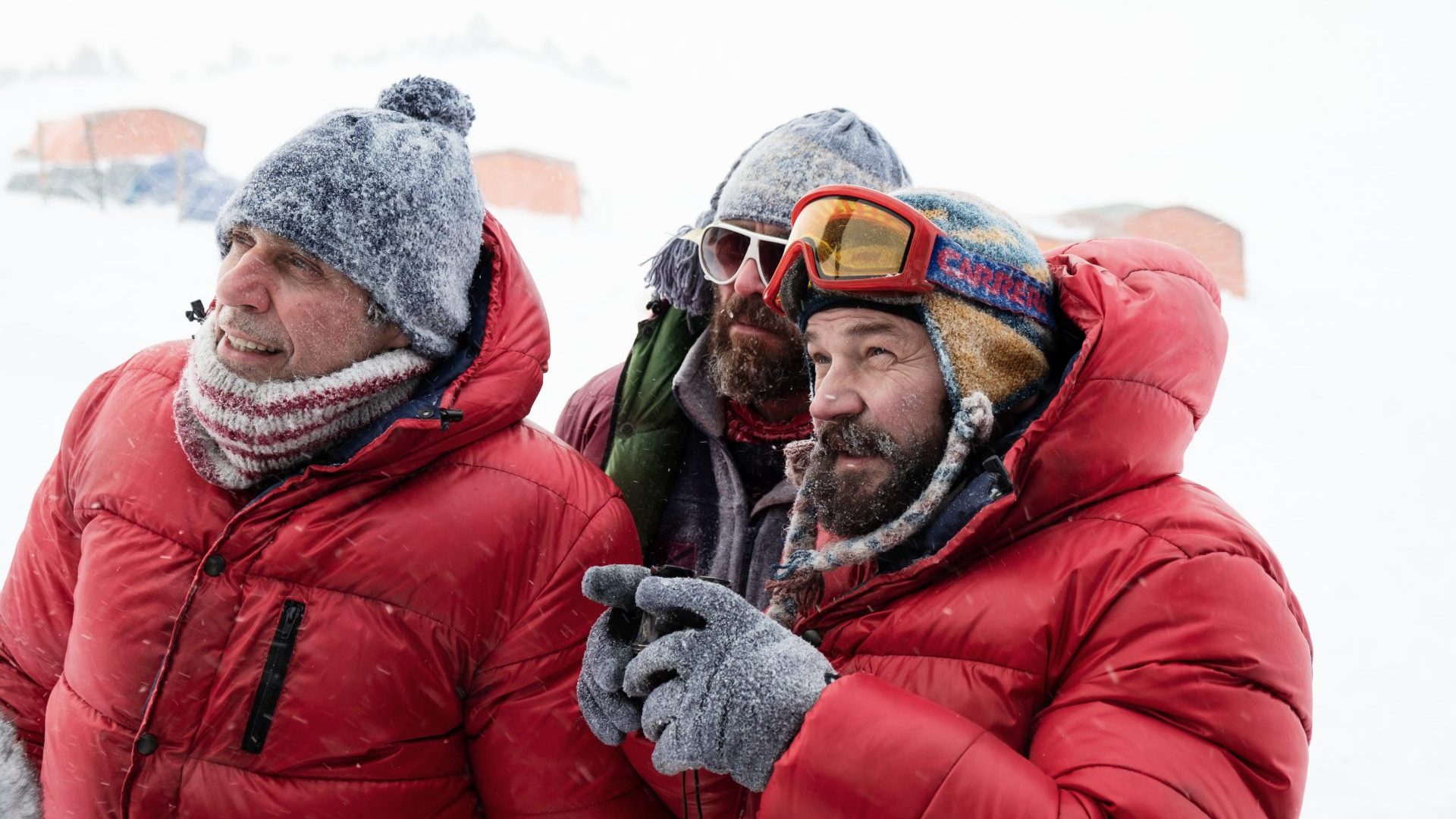Trying to make the worst record in history is hardly the most auspicious start to a musical career. But elder statesman of Americana-influenced Norwegian folk, Jonas Fjeld, did just that with his first band in a ploy to get dropped from their record label before going on to half a century of quiet success.
Indeed, this year Fjeld celebrates 50 years in the business, as well as his 70th birthday and the release of To the Bone, his first solo album sung in English for over 20 years. A multiple winner of the Spellemann music prize and a Norwegian Hall of Fame inductee, his stature was confirmed two years ago when he featured on the Norwegian 50g postage stamp.
But it all started in the most improbable of ways with the Jonas Fjeld Rock ’n’ Rolf Band. Inspired by the comedy rock of Frank Zappa and the musical experimentation of Captain Beefheart, the band were known for wild stage shows, with future Norwegian comedy legend Herodes Falsk injecting his own brand of anarchic humour.
Even Fjeld’s name was a joke. Born Terje Jensen, he took on the name of the swashbuckling surgeon in the long-running series of novels by author Øvre Richter Frich as part of the band’s pantomimic schtick.
The 1976 album Endelig! (Uff, ikke nå igjen?) (At Last! (Oh no, not again?)) was the band’s attempt to make an album so bad that Mercury would release them from their contract. Opening with a comic cover of Barry White’s Can’t Get Enough of Your Love, Babe and including a skit titled Abba’s Greatest Tits, the album was an unexpected success – much to its makers’ dismay. They rebranded as the Jonas Fjeld Band to distance themselves from their reputation.
Going to Nashville to record The Tennessee Tapes (1977), which included lyrics by legendary Norwegian songwriter Audun Tylden and musical contributions from the likes of Don Everly and Skeeter Davis, was a statement of intent. After four more albums, Fjeld went solo and the early 1990s would be a golden era for him.
Breakthrough album Svært nok for meg (Big Enough for Me) (1989) reached No 2 in Norway in 1990, went gold, and spawned Fjeld’s signature song, the bittersweet Engler i snøen (Angels in the Snow) (1990). With lyrics by folk troubadour Ole Paus, the song would be covered by others and re-recorded by Fjeld in various versions over the next 30 years, including on Danko/Fjeld/Andersen, a folk-rock collaboration with American musicians Rick Danko, formerly of The Band, and Eric Andersen, which was a hit album in Norway.
Danko, Fjeld and Andersen followed up with Ridin’ on the Blinds in 1993, and working collaboratively has been a hallmark of Fjeld’s career, from teaming up with Ole Paus as To rustne herrer (Two Rusty Gentlemen), to releasing four records with American bluegrass revivalists Chatham County Line, and contributing to an LP of Hank Williams covers entirely in Norwegian.
Now with To the Bone Fjeld is once again proving that the plains of the American South have more in common with the land of the midnight sun than might first be obvious, beautiful but harsh landscapes, hard drinking, and a rugged, outdoors lifestyle perhaps giving rise to a similar sense of pathos.
The album finds Fjeld channelling an affecting Americana, showcasing his characterful, lived-in voice (Nashville with only a hint of Norway), and confirming his career-long talent for working with the best lyricists – most of the songs feature the words of country music veteran Hugh Moffatt, whose songs have been recorded by the likes of Dolly Parton and Johnny Cash.
While there is some variety on To the Bone, notably the slinky Love Strikes and the soulful I Can Dance, it is primarily an album of quietly moving, warmly intimate ballads. There’s the pedal steel guitar-laced manifesto for centring love and affection Place for Warm, and the gentle deathbed lament of Electric Lung. Rosie is in the folk storytelling tradition, while Savannah makes the epic imagery of the American South seem fresh rather than a well-worn trope.
Although the album is Fjeld’s return to the English language, the LP ends with a Norwegian song, Vi Veit Aldri (We Never Know), its lyrics by Fjeld’s long-time collaborator, children’s author Arne Svingen. As Fjeld plays the Oslo Opera House this weekend, the sentiment of that title seems wholly appropriate to an artist who has gone from unlikely beginnings to turn out to be a great survivor.
Jonas Fjeld in five songs
Moonshine Man (1973)
From the Jonas Fjeld Rock ’n’ Rolf Band’s eponymous debut album, the influence of Frank Zappa and Captain Beefheart is clear on this engaging rocker.
Engler i snøen (1989)
Fjeld’s signature song, it was covered by Judy Collins as Angels in the Snow on her 2013 Christmas album. She recorded it again with Fjeld and Chatham County Line on their successful collaborative album Winter Stories (2019).
When Morning Comes To America (1991)
A wistful take on the American dream full of vivid human imagery, this was one of two songs Fjeld wrote with Nashville lyricist Jim Sherraden for the collaborative album Danko/Fjeld/ Andersen.
Hjem (2020)
A duet with Norwegian veteran musician Halvdan Sivertsen, this country-flavoured ballad shows Fjeld’s great skill for collaboration.
Dust in My Wallet (2022)
Coming almost 50 years after his first release, Fjeld’s latest single is a fiddle-laden slice of classic folk but with a message for today: “I got dust in my wallet/ And the Devil to pay”.




